Emergency Reasons to Missing Work: Common excuses are someone suddenly getting sick (a family emergency where a loved one has had to be hospitalized) or something sudden like your car keys got lost and your car broke down and left you stranded.
As long as excuse is honest and timely as published well before, then employers respect such excuses. In those situations, it’s best to let your employer know as soon as you can, with a short but clear explanation of the emergency, and, if applicable, offer to make up for lost time or complete any pressing work remotely. The solution is not necessarily with markup or adjusted price, but to genuinely address the issue with transparency.
Printable Emergency Excuses to Not go to Work Template
Emergency excuses to not go to work are sometimes necessary, offering protection, relief, and legitimacy in unforeseen situations. Here’s a detailed breakdown of the need for such excuses:
Personal Safety
- Health: We not always be able to wake up to go to office due to some sudden illness or injury, Hence at times leaving work is unavoidable.
- Avoiding work when physically unfit helps prevent accidents or incidents from happening at the workplace, more so in high-risk environments.
Family Emergencies
- Caregiver Responsibility: If a family member suffers a health emergency or accident, attention comes straight to the top, especially if the family member is a child or elderly relative.
- Critical Support: If your spouse or partner has an emergency, you may need to give physical, emotional or logistical support.
Mental Health Preservation
- Burnout prevention: Emergencies provide an escape from a stressful situation, an opportunity to plan how to deal with an overwhelming project, and a buffer against major burnout.
- Emotional Distress: Having trauma in personal life like a family death, serious break-up needs time-off to return back to emotional stability.
Unforeseen Circumstances
- Natural Disasters: Extreme weather, floods, fires or earthquakes could render your commute unsafe or impossible and require an emergency day off.
- Home Emergencies: Home emergencies, like a plumbing leak, electrical failure or break-in, require urgent attention and time off work.
Work-Life Balance
- Explaining how employees who are entitled to take a time-out from their obligations in the workplace allows them to respect their personal obligations instead of just being over-burdened with endless work-related issues.
- Megasoma prevention: It gives a space to recover through life’s sudden difficulties, protecting against physical and mental megasoma.
Regulation or Administrative Responsibility
- Court Appearances: Unexpected legal matters often require immediate time off from work — such as subpoenas, jury duty or legal emergencies.
- Emergency Excuse: In cases such as government or official business, passport or visa emergencies, etc.
Transportation Problems
- Car Trouble: You could suffer an auto breakdown or have a wreck on the way to work that keeps you from arriving on time that day, and may require leaving work for emergency repairs.
- Public Transport: If public transportation systems suddenly cancel destroy or go on strike, they may be the only way to commute.
Emergencies of Financial Or Security Nature
- Banking Problems: (bank fraud alerts, lock out of bank accounts, financial crisis) require immediate action within business hours
- Breach of personal security: Types such as robbery, stalking, or other security issues, getting an emergency excuse helps buy time to ensure safety and administration of the issue.
Unexpected Childcare Issues
- School Closures: Sometimes school or daycare might close due to weather, strikes, or other emergencies which requires arranging for childcare at a moment’s notice, and as needed, missing work.
- Parental Emergency – A child getting sick suddenly might ask for your immediate attention and care which can be a genuine cause for an emergency leave.
Employer-Employee Trust
- By keeping the use of emergency excuses to a minimum, employees build trust with their employers while also showing that they understand the need to only take time off or make demands for true emergencies.
- Ensuring Job Protection: Through providing valid explanations and supporting documents, if required, employees can ensure that they are in a secure position while addressing emergencies outside job.
- Finally, emergency workplace absence excuses reflect the critical, spontaneous events that uphold the health, security and obligations of employees while maintaining a mutually توت respect, trust and understanding within the organization.
![Real Doctors Note For Work and School [Get in 5 Minutes]](https://realdoctorsnotes.com/wordpress/wp-content/uploads/2025/11/2.png)

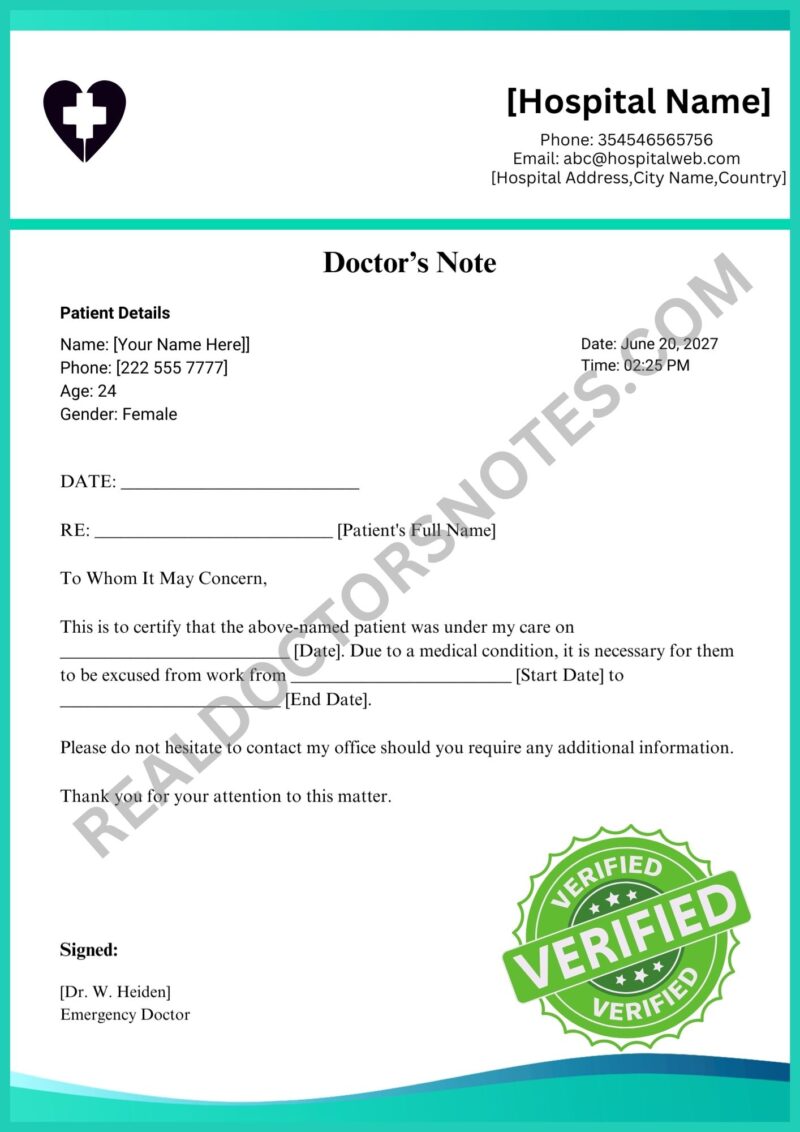
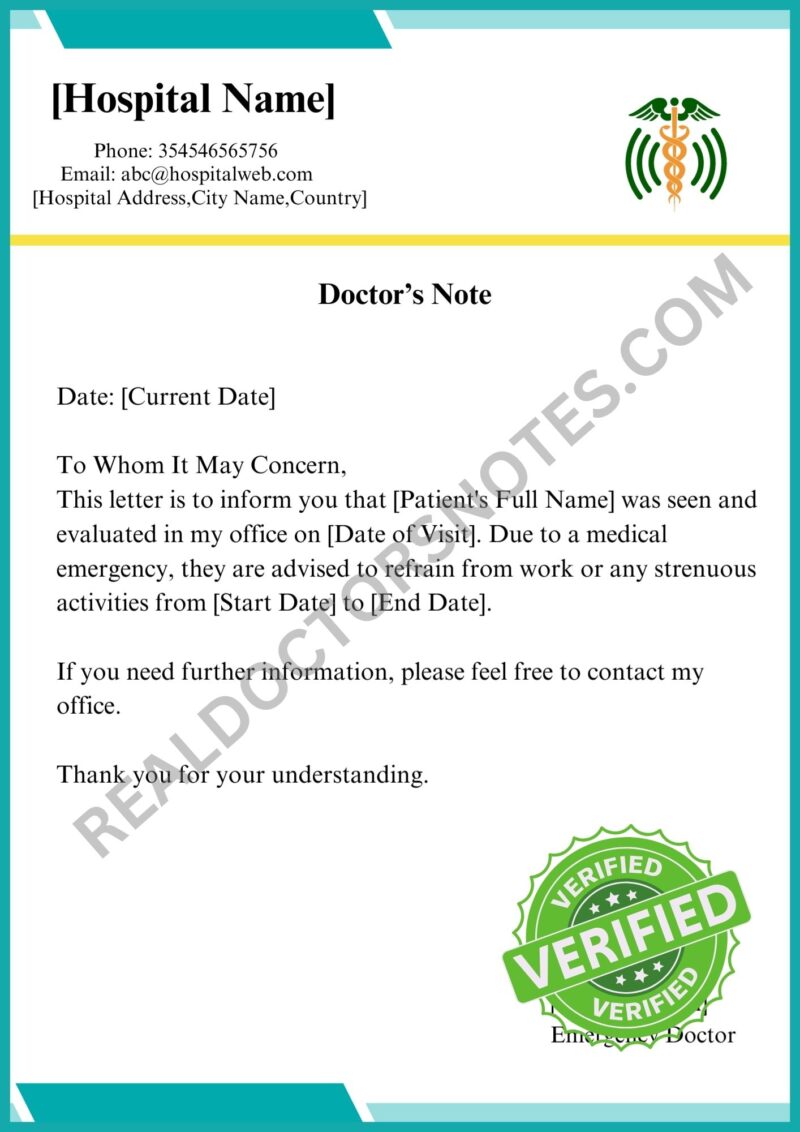

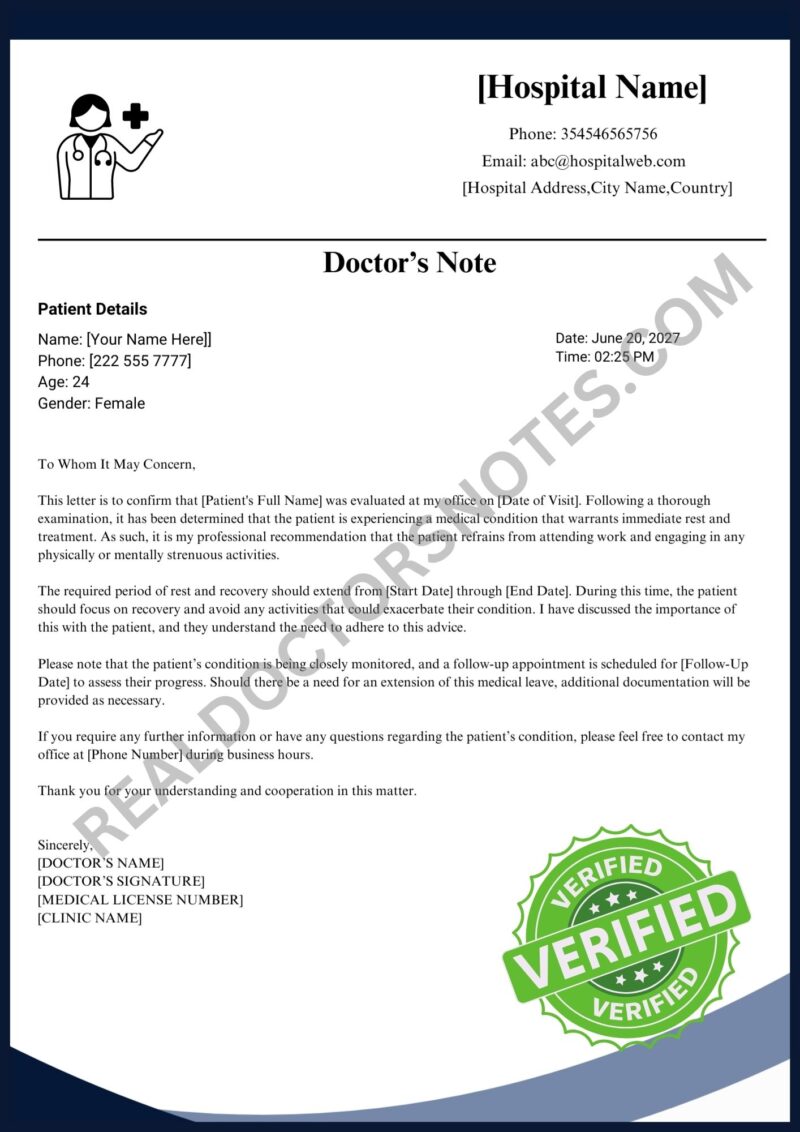
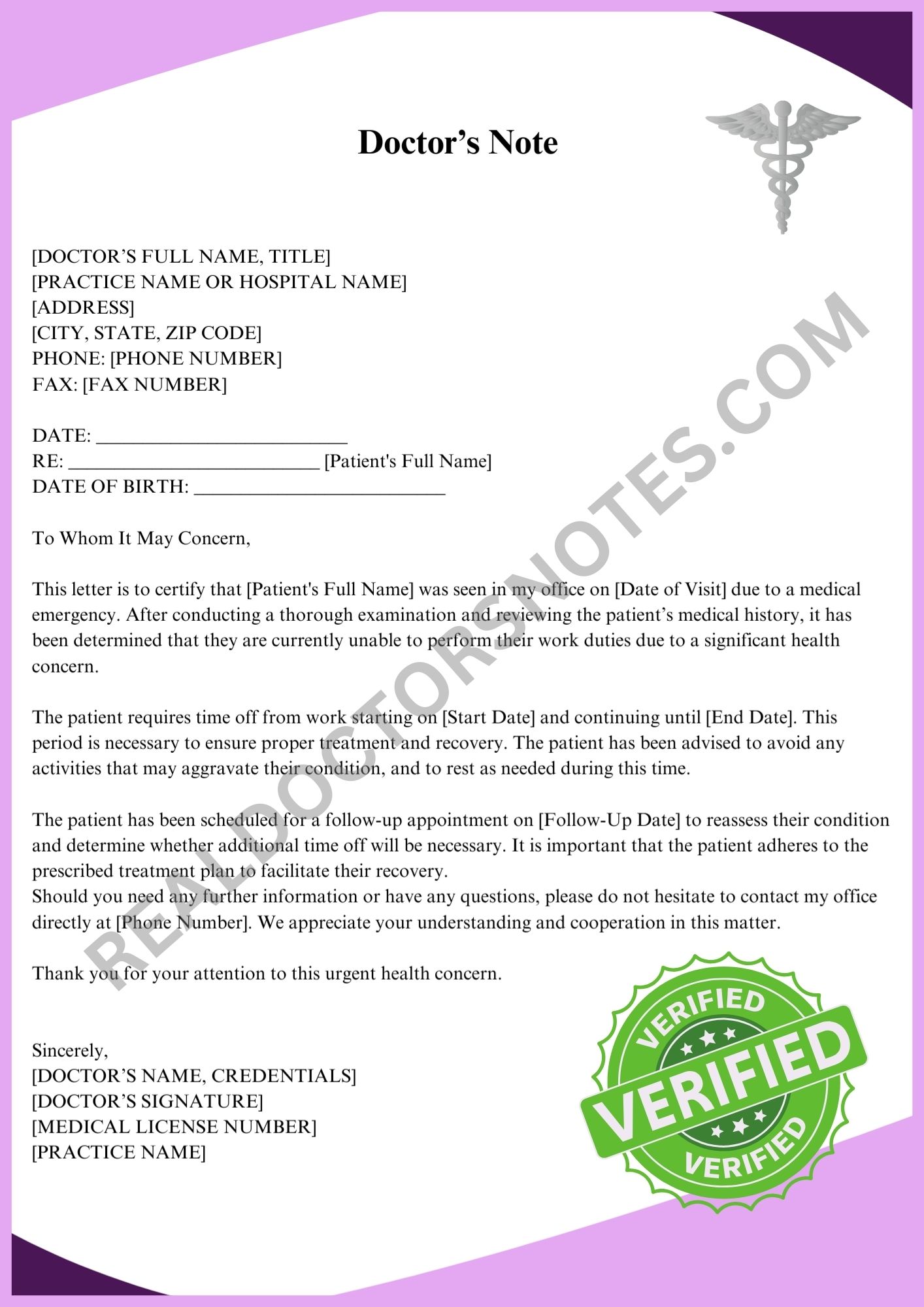



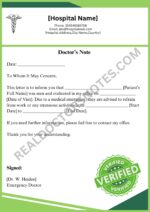
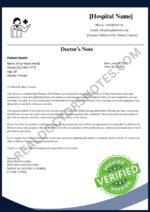
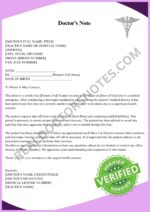



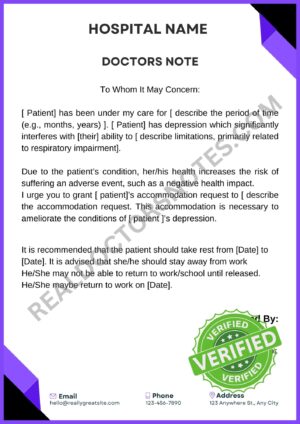

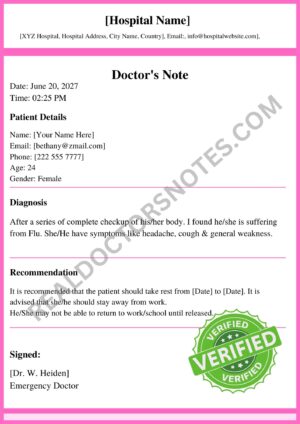

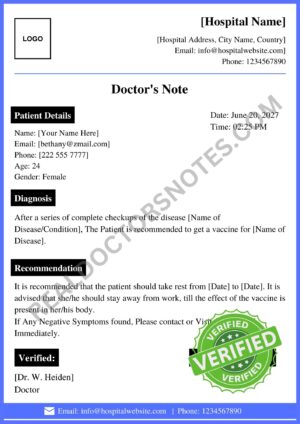

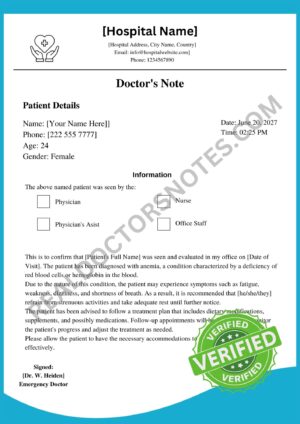
Reviews
There are no reviews yet.